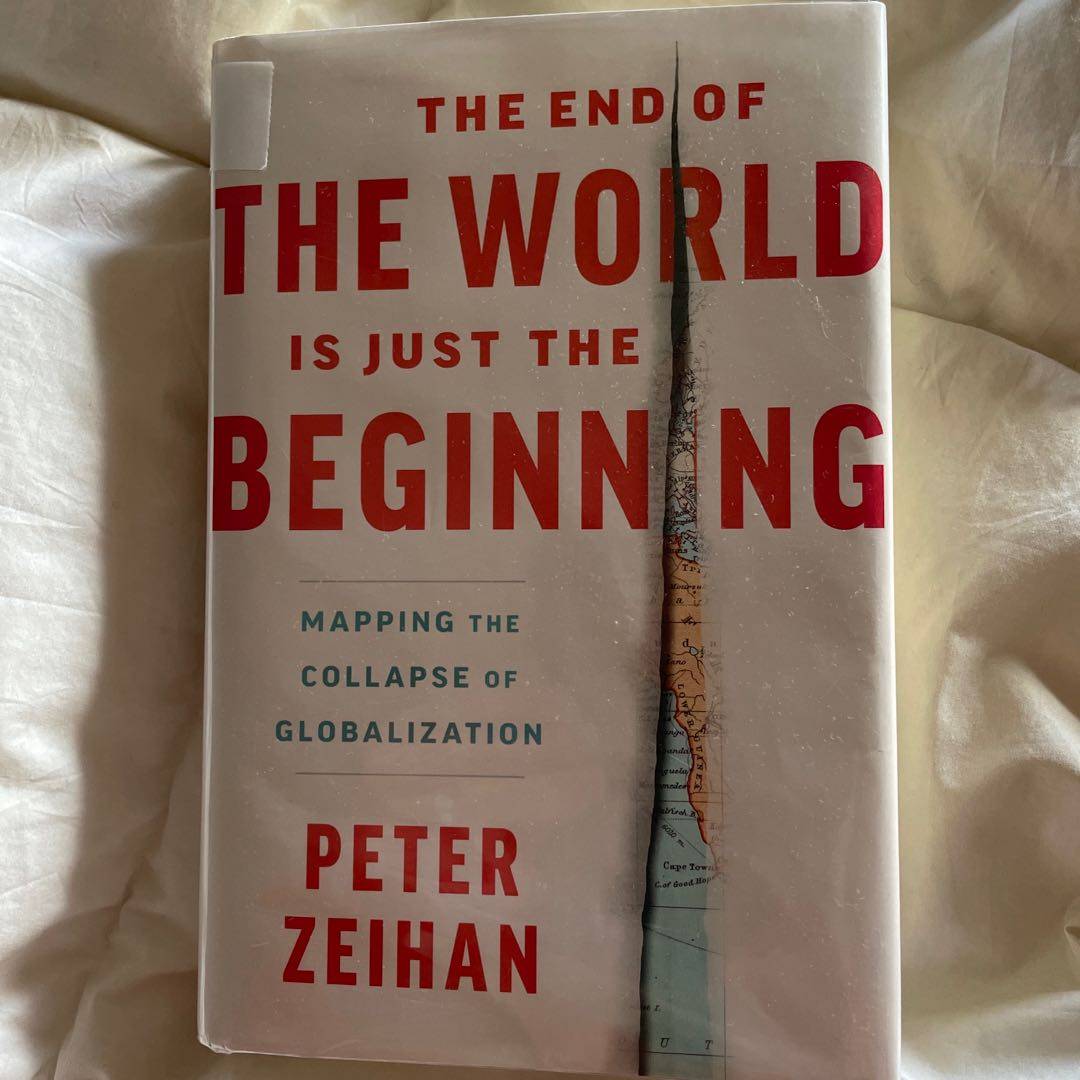The history of the next fifty years will be the story of how we deal with--or fail to deal with-- the coming food shortages.
The history of the next fifty years will be the story of how we deal with--or fail to deal with-- the coming food shortages.
Bananas (continued):
Organics also tend to be grown at higher, drier elevations to somewhat limit pests, which means the bananas need massive irrigation to grow. The result is the food product with the highest chemical and carbon footprint, as well as the highest staff turnovers from death in any industry. Happy eating.
For those of you organic buffs who refuse to eat anything that's been touched with anything artificial, know that a roughly half-mile radius around organic banana plantations is practically nuked with non-organic pesticides and herbicides and fungicides to protect your proclivities.
This was a very interesting book, but I wish that Zeihan would've taken more time to explain exactly WHY the world will be become deglobalized, rather than just treat it as an inevitability.
Readers who enjoyed this will also enjoy the books of George Friedman, as well as $20 Per Gallon by Christopher Steiner. #2025Book20
The entire concept of the order is that the United States disadvantages itself economically in order to purchase the loyalty of a global alliance. That is what globalization is. The past several decades haven't been an American Century. They've been an American sacrifice. Which is over.
Even better, the North American continent faces few security threats between its own shores and those of potential suppliers. On average, North American products face less than one-third the supply chain disruptions the Germans are likely to feel, and one-tenth that of the Asians.
Most studies in the past half decade have indicated that by 2021, most manufacturing processes were already cheaper to operate in North America than in either Asia or Europe.
Finally, there's the location where workers sew on the “made in“ tag. Typically, nothing is actually made there. It's more an assembly thing. The average pair of jeans is touched by hands in at least ten countries. And God forbid you use a bedazzler to put sparkly bits on your ass--the input system for that little gadget practically involves space travel.
Finished platinum is so very pretty and as such is often used in high-end jewelry (like my you-are-mine-for-life-so-don't-try-anything-stupid commitment band).
In the United States we began purging lead from our systems in the 1970s, systematically banning its use in product after product. Over the next half century, the ambient level of lead in our air dropped by more than 90 percent. At the same time, instances of violent crimes subsided from record highs to record lows. Correlation? Definitely. Causation? Let's go with a strong maybe.
On obtaining cobalt from the Democratic Republic of Congo:
So take your pick: go old-school imperial on multiple countries in order to strip-mine a specific material while alternatively exploiting or shooting desperate locals who try to get a bite of the action for themselves, or go without and stick to coal and natural gas. The future is full of such fun choices.
The world of the past few decades has been the best it will ever be in our lifetime. Instead of cheap and better and faster, we're rapidly transitioning into a world that's pricier and worse and slower. Because the world--our world-- is breaking apart.
The laptop I'm tapping this down on has more memory than the combined total of all computers globally in the late 1960s.

Part history, part economics, this book isn‘t exactly a “pick me up”, but it does have a lot of interesting, international information. It spans geography, finances, transportation, energy, population, manufacturing and agriculture to give some background knowledge, current status and future projections. The basic theme is that everything is basically collapsing- which was quite interesting to read.